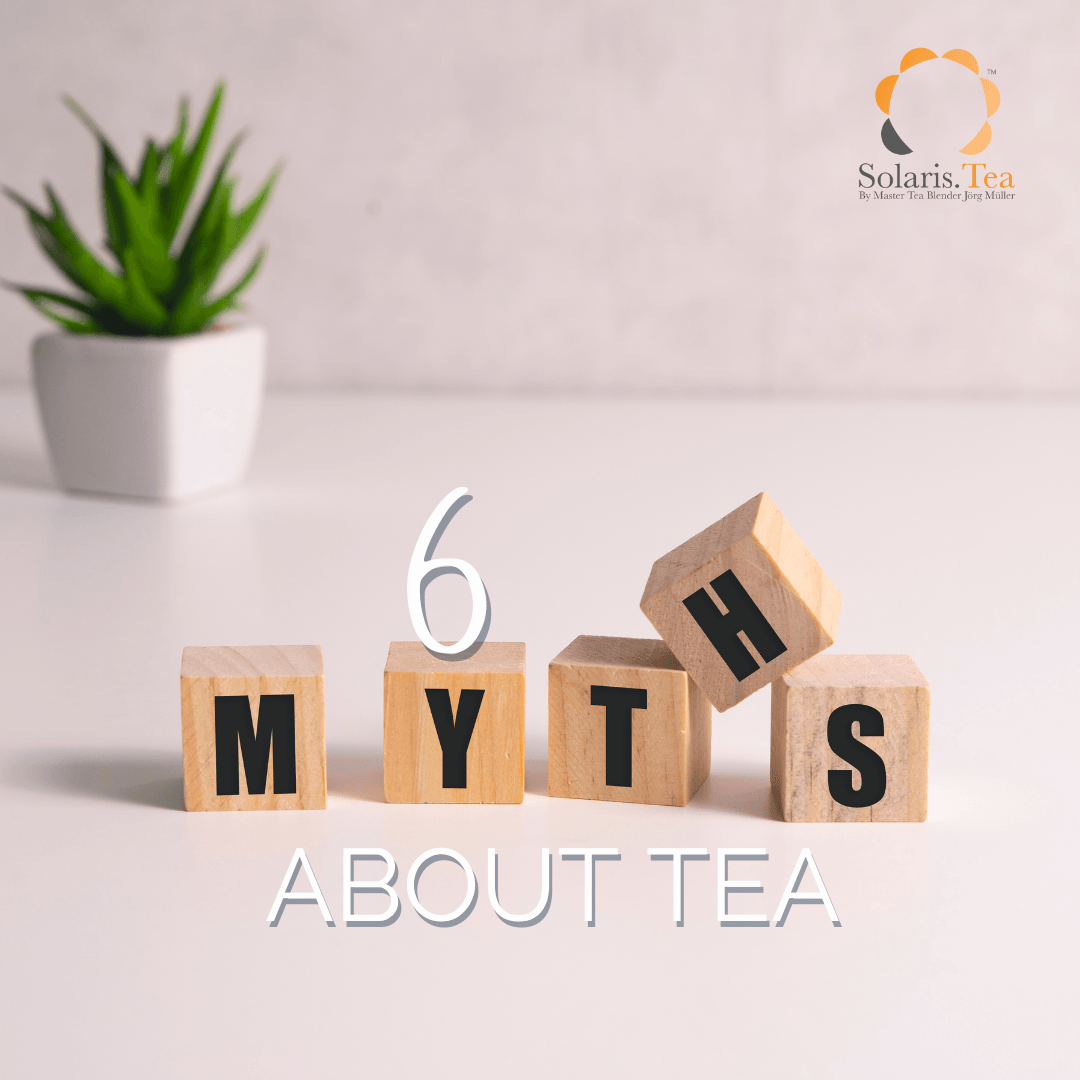6 Myths About Tea
With tea being the second most consumed drink in the world and wrapped in millennial traditions, it's impossible not to hear stories of its powers. So how do we separate the myth from the true magic that lies within each cup of tea.
We've created a list of 6 fascinating myths about tea.
Check them out here!
1. All Tea is the same
Those who love tea know that each tea is unique.
Technically, every tea is unique, as their characteristics are determined by many factors such as the tea variety, the terroir- influenced by soil quality, altitude, weather, location, farming methods, amongst many others.
For example, a Green tea from China is completely different from a Green tea from Japan.
Not to mention the countless combinations of aromas and flavours possible with blends, which can create new compositions. This is what makes the tea universe so incredible!
2. I can prepare all teas in the same way
As we talked about in “3 Steps for a perfect cup of tea.”
3 steps to the perfect cup of tea
One of the biggest mistakes a tea lover can make is to prepare all types of teas in the same way. Each blend has an appropriate water temperature and brewing time.
These factors are responsible for creating a balanced tea, rich in aromas, with a distinctive flavour and rich liquor colour. Follow ‘these simple steps’ for your perfect cuppa and avoid your tea becoming too bitter, mild or without personality.
The tea can even be of excellent quality, but if it is not made according to the specifications of the individual tea, it won't shine to its best ability.
3. Drinking tea will help me lose weight
One of the most popular searches on the Internet is "tea to lose weight".
The market offers hundreds of products and herbal combinations promising this result, but unfortunately, no one tea or herbal infusion will make you lose weight all by itself.
The good news: Some herbs do have compounds that help to break down fats, optimise metabolism and help you to reduce your sugar cravings such as Green Tea, Pu Erh, Hibiscus teas, Cinnamon and Liquorice?
However, the effect will be hugely amplified if you commit to a whole life overhaul!
Tweaking a little every day and committing to it really does make a difference.
Eating a balanced diet suited to your body type, adopting a daily exercise routine and reducing your stress levels, as well as introducing daily mindfulness are all hugely supportive to reach your end goal.
In other words, know your own body and what suits you, taking your lifestyle, health status and body type into account. If you need a helping hand to get started, talk to a trusted health professional/ herbalist/ naturopath or nutritionist- for the best lifestyle plan suited to your individual's needs.
4. You can consume it in any quantity
If tea is natural, we can drink as much as we want, right?
Like any other drink, tea and herbal infusions contain bioactive substances such as compounds, minerals, and vitamins.
If drunk in excess, these can overload the body and put pressure on your kidneys or other body organs.
So, stay tuned: the ideal is to consume between 2 and 4 cups of 200 ml tea or herbal infusions per day.
5. Tea replaces water
Even though water is the main ingredient in tea, you shouldn't replace your daily recommended water intake with it.
The reason for this is that when you mix water with another ingredient, the resulting compound is different from the original, in other words, it is no longer pure.
Drink the appropriate amount of water per day, generally 1 ½-2 l are recommended daily, in addition to drinking teas and herbal infusions, to maintain a healthy and balanced lifestyle.
6. All teas can be drunk by all people
Tea and herbal infusions are popular drinks and when blended by known and trusted brands are very safe to drink.
Very occasionally certain plants, as with some food items, can cause allergic reactions, sensitivities or trigger health problems.
This occurs because the organism may have some reaction to the bioactive compounds found in herbs.
It also suits some people better to choose caffeine free herbal infusions vs caffeine containing teas. So know your own body and what suits its best. We are all individuals with our own needs and preferences.
If r you ever feel ill or have physical symptoms after consuming a tea or herbal infusions, seek medical help and avoid consuming it again.
Want more tips on how to get the most out of your tea and herbal infusions? Sign up to our newsletter and stay tuned to our blog and Instagram!
